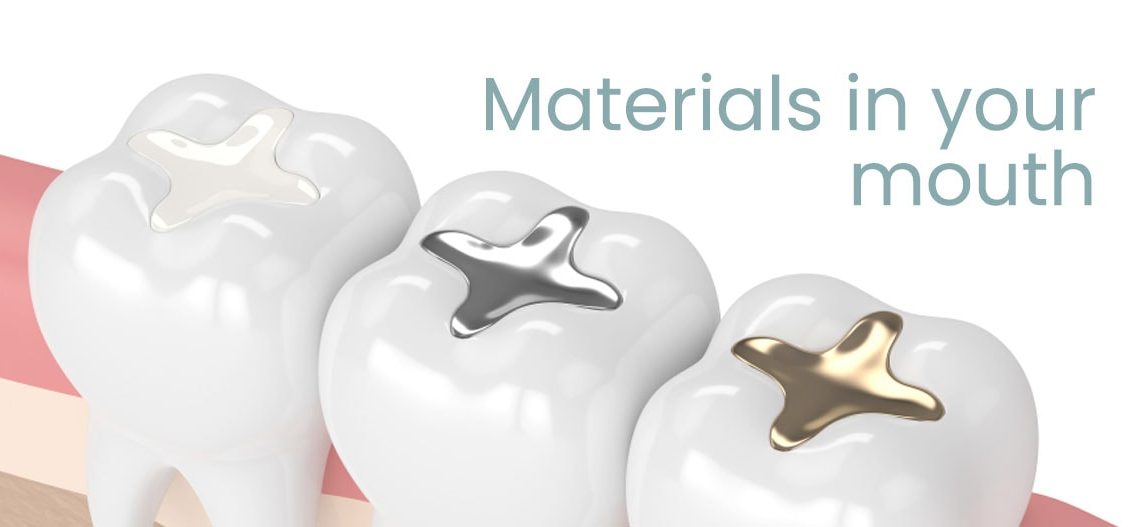We use holistic materials like porcelain, BPA-free resin, and fluoride-free resin for cosmetic dentistry and restorative treatments at our office.
The truth is that there are many important factors that go into choosing the right type of material for your treatment. In this blog, we talk about the holistic materials we use, why we use them, and the factors that influence how we choose which material is best for the task at hand.
What materials are considered holistic?
Holistic by definition is anything that relates to the system as a whole – not just the teeth. In the case of materials, a holistic practice considers factors like composition, process, and environment. A holistic material is anything that is biocompatible – meaning physical matter that comes from the ground.
Many of the materials we use for cosmetic dentistry and restorative dentistry treatments are holistic. But it’s important to note that not all dentists use holistic materials. Amalgam (mercury fillings) and BPA resin are still reasonably common in traditional dental practices.
Porcelain for veneers, crowns, bridges, onlays, inlays and implants
Porcelain is the most biocompatible material used in dentistry and regularly used in cosmetic dental treatments like veneers, crowns, bridges, onlays, inlays, and implants.
Porcelain has many other desirable characteristics which are why it’s widely used in our practice. Porcelain is not only biocompatible, but it also is beautiful, strong, and lasts much longer than resin. It never stains so you never have to worry about it going yellow or dark no matter what you eat or drink. Its strength and stain resistant qualities make it a desirable material for front teeth restorations.
Some patients choose a porcelain onlay or inlay instead of a filling because it lasts so much longer.
BPA free resin
There are a few uses for resin. The primary use is for fillings when you have a small cavity or need an old filling replaced. What many people don’t know is that dental resin is also used to build up missing tooth structure inside of a crown. If you are having a crown done on a tooth with a large cavity, the cavity is often filled with resin first and then covered with a crown. Resin is also used in a technique called “bonding” to repair chipped front teeth or close open gaps between teeth.
Regular dental resin contains BPA. BPA is a chemical found in plastics that is connected to heart disease, fertility issues, male impotence, and cancer.
For this reason, our Oakville dental clinic only uses BPA free resin.
Fluoride free resin
Fluoride was introduced to resin because dentists wanted a way to reduce secondary decay after placing a filling. The fluoro-alumino-silicate glass that is found in most resins today and is designed to release fluoride after resin placement. This means fluoride is constantly released into your mouth. For many people who are becoming increasingly concerned about fluoride, this comes as an unwelcome surprise.
Our office only uses resin that does NOT contain fluoride.
Secondary decay is not a concern when resin is placed with the use of rubber dam and proper isolation techniques are followed. The use of rubber dam is key to ensuring a sterile environment which results in a restoration that has a strong bond to your tooth as well as a much longer life-span. When a rubber dam is used, a fluoride-releasing resin is not needed and a BPA-free resin is a much better alternative.
The right holistic material for your mouth
Dr. Bis is open to use materials that you have researched provided that they are also a good choice for your situation.
We want to ensure the characteristics of the material are right and that it offers a durable and satisfactory solution to the problem. The type of restoration, depth of the previous filling, and aesthetic concerns all factor into the choice of material.
There are circumstances when alternative materials, like indirect resin, can be used but things like the force of occlusion, the position of centric contacts, and the existence of pathologic habits like bruxism need to be considered.
To know what the best holistic material is for your situation, Dr. Bis needs to look at your teeth and get an idea of what is going on with your particular case.
To find out about your particular situation, book a consultation with Oakville holistic dentist Dr. Agatha Bis call 905-338-6684 or filling out the form below.

